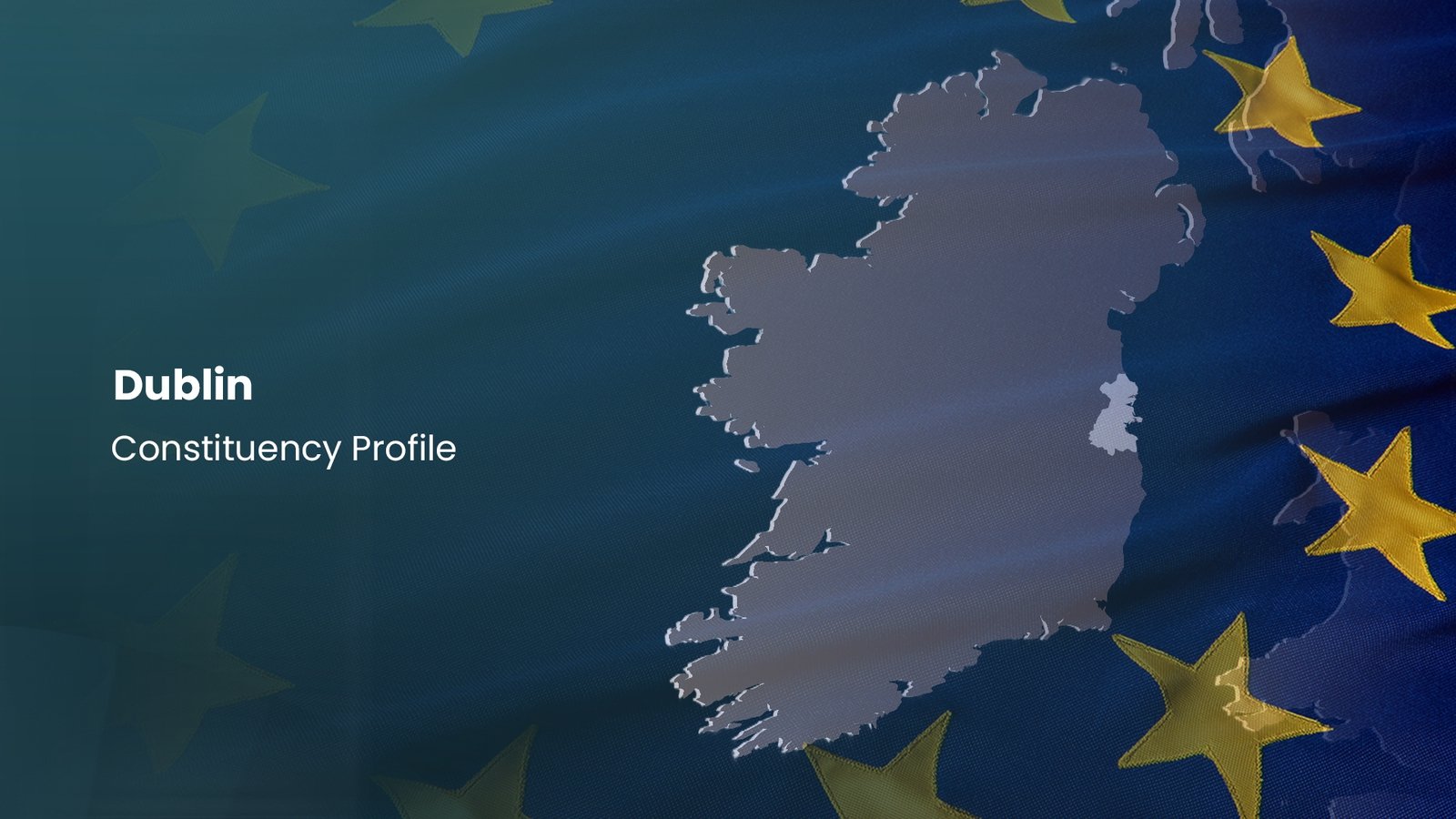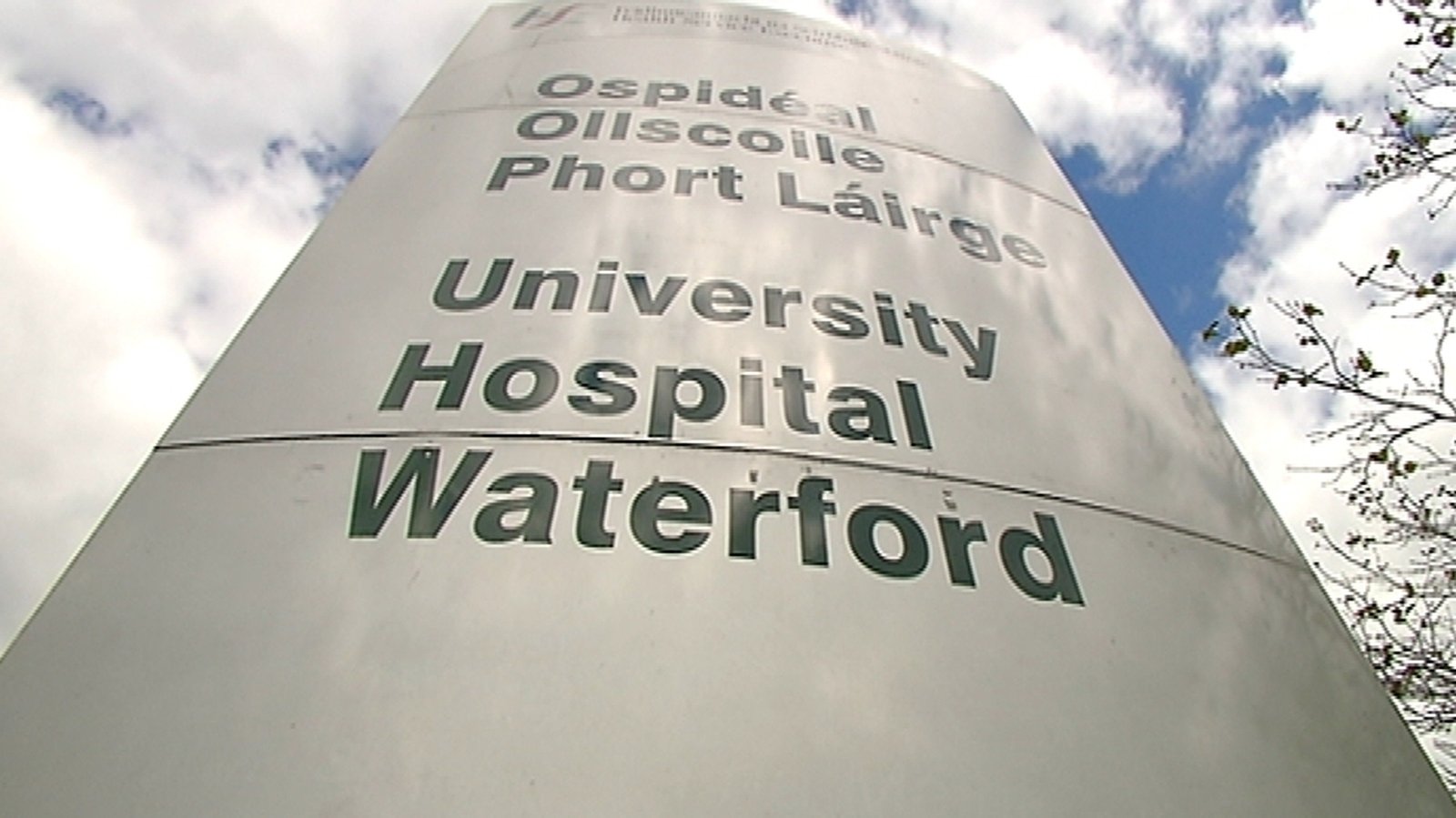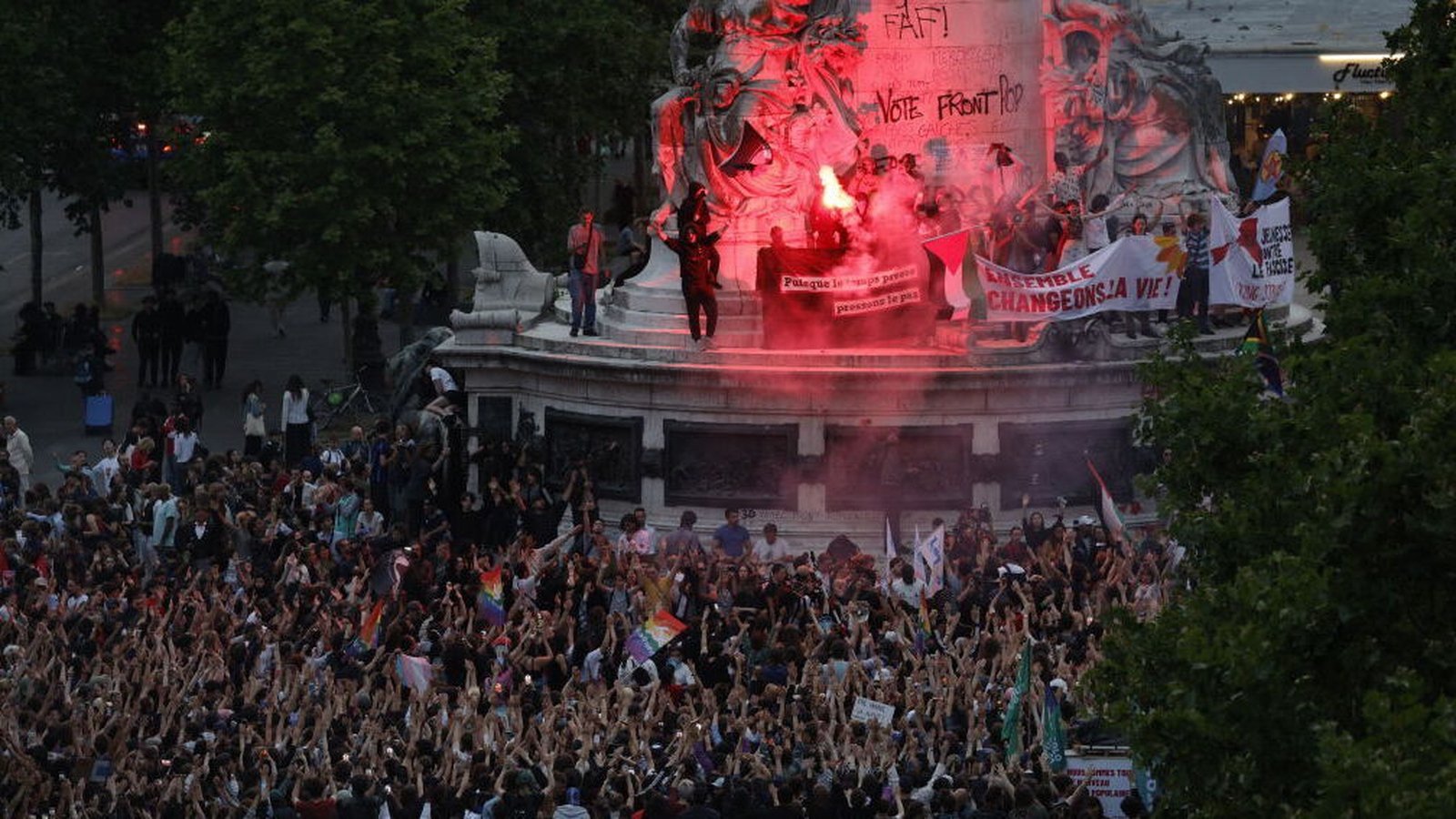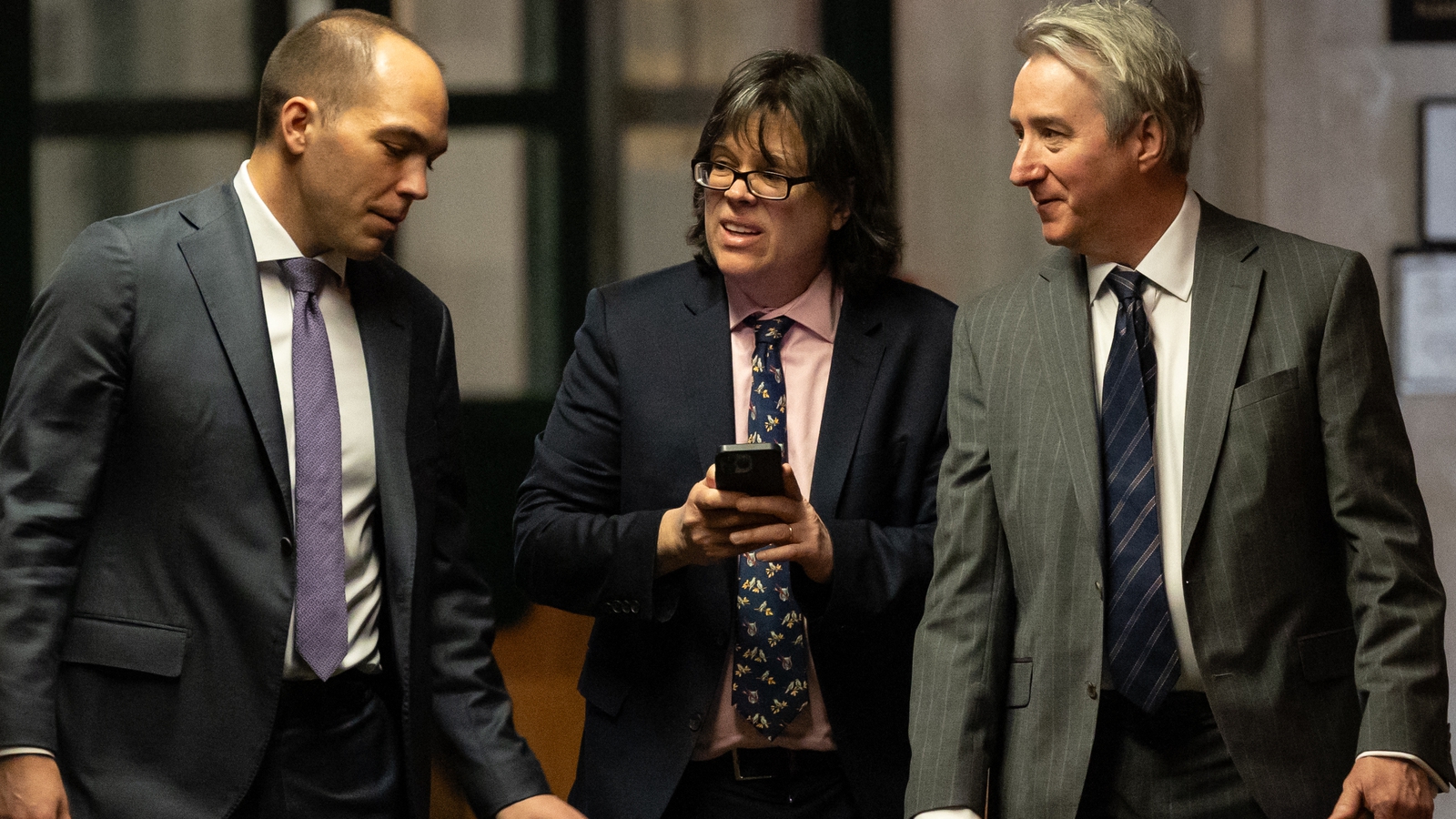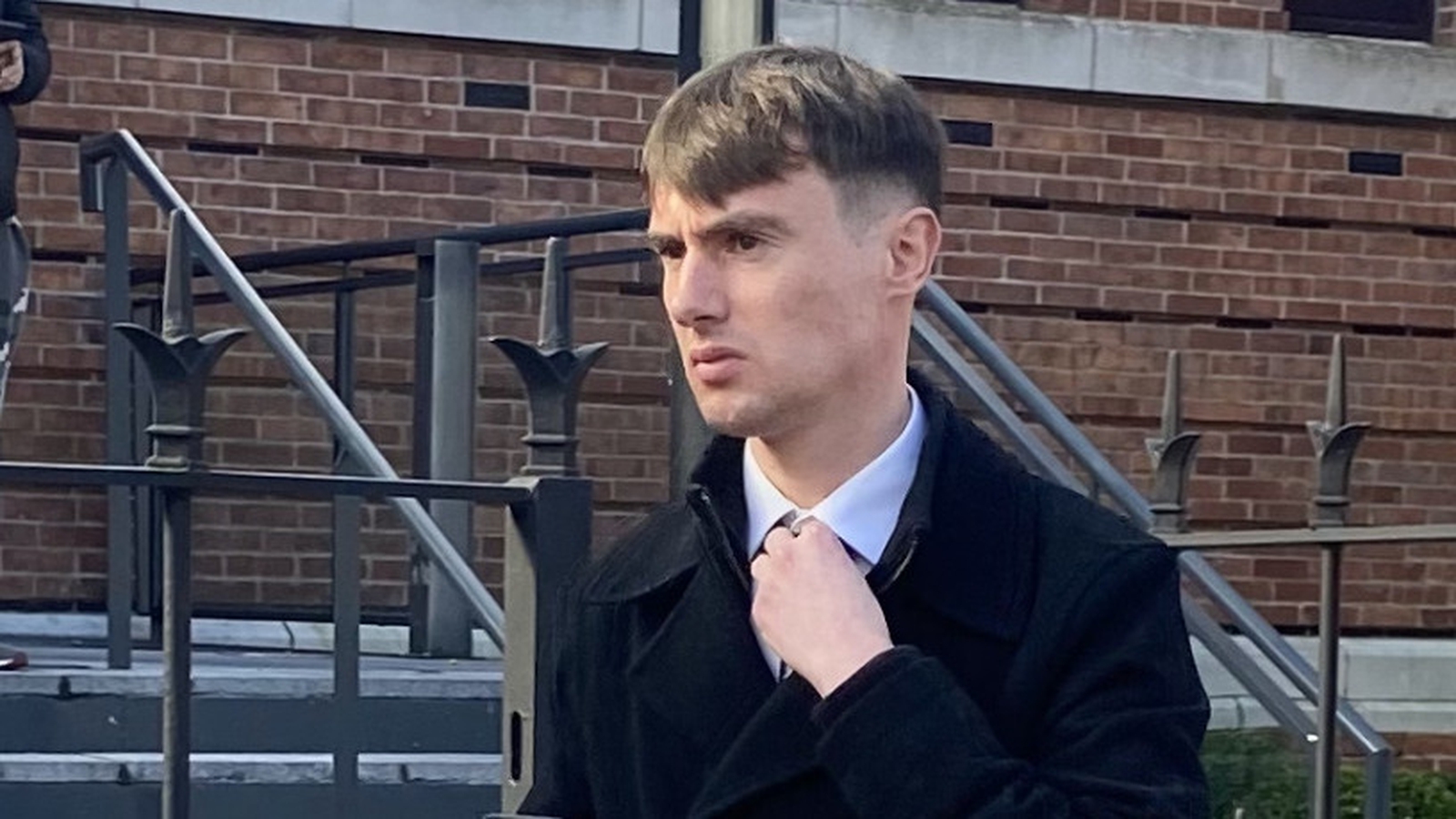Series of false dawns as Stormont still in cold storage

Frost and ice covered much of Northern Ireland as the DUP’s 12 strong party officer team met at an undisclosed location on Friday to discuss whether it was time to take power sharing out of cold storage.
The meeting was billed throughout the day as “critical”, “decision day” and “yay or nay time”.
The speculation had been fuelled by an intervention by BBC Northern Ireland presenter Stephen Nolan who interrupted his holiday in the US to call his own talk show to “break the news” about “a very important meeting.”
The party officer team was said to be split 7-5 in favour of a return to devolution at Stormont and its meeting was described as one that could determine the future of the Union as well as that of the DUP and its leader Jeffery Donaldson.
Politicians from other parties were among those who reacted to the report that a decision on a proposed deal with the UK government to resolve the dispute over the Windsor Framework post Brexit trade deal was on the cards.
Downing Street expressed hope that the political impasse could be about to end and there was an expectation within the Northern Ireland Office that the DUP leader was going to ask his party’s decision making body to back the deal, and then convene a meeting of its executive to discuss and ratify it.
Taoiseach Leo Varadkar described news of the meeting as positive, but also warned that there had been a “a number of false dawns” in terms of the potential return of Stormont.
Two senior and well placed members of the DUP I spoke to shortly after the news broke said it was news to them that there was to be a definitive vote that day on whether to return to Stormont.
“I don’t think things are going to move as quickly as is being outlined,” said one.
“I’m not expecting any vote or announcement any time soon,” said the other.
Both were right.
It was indeed, the latest in a series of false dawns.
There was a similar meeting and similar fevered speculation on Friday 15 December.
That meeting was also described by many as critical and it was widely reported that a vote on a deal to return to power sharing was on the cards.
The margin was said to be 8-4 or 7-5 in favour of a return.
The British government was so confident at that time that Jeffrey Donaldson’s party was about to end its Stormont boycott that Rishi Sunak had pencilled in a flying visit to the British Royal Palace in Hillsborough in Co Down to take part in a celebratory press conference the following week.
The BBC’s UK network Political Editor Chris Mason had also booked a flight and was due to anchor a special report on a political breakthrough.
But then, like now, there was no vote. No press conference. No change of policy. The travel plans were cancelled.
Instead there was just a short statement from the DUP noting that “there has been considerable interest in our meeting today”.
It added: “We will not give a running commentary on our position, save to say, we will continue to engage with the government.”
There’s the rub.
Pressure ratcheted up
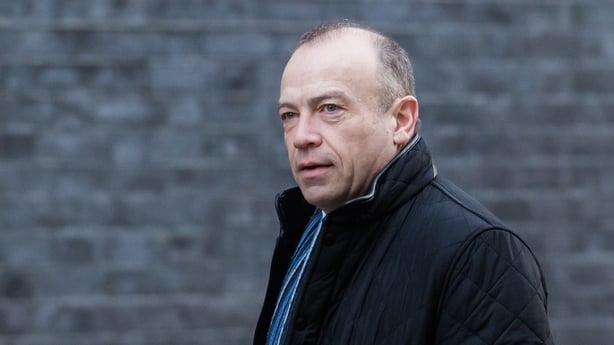
When the much anticipated breakthrough did not come last month Northern Secretary Chris Heaton-Harris, under direction from Downing Street, declared that negotiations between his government and the DUP aimed at resolving the latter’s concerns about the Windsor Framework had “concluded”.
He also once again ratcheted up the pressure by making it clear that a financial package of more than £3 billion, including almost £600m to resolve public sector pay disputes, was conditional on a return to devolution.
The announcement that Windsor Framework talks were over surprised and upset the DUP leadership in equal measure. It was clear the party had not succeeded in securing sufficient concessions for it to end its boycott and the British government had very publicly closed the door to any further progress, aside from some “clarifications”.
In the weeks since the DUP has insisted that it has remained engaged with senior British officials and claimed that further progress has been made.
Not so say well placed British government sources, who insist that there have been no substantive negotiations and no significant change in its position.
During Friday’s meeting Jeffrey Donaldson and his deputy leader Gavin Robinson updated the other 10 party officers on what progress they believe has been made in the weeks since 15 December.
It clearly wasn’t enough for the party leader to be confident that he could win any vote with what he would consider an acceptable majority. Party sources say an 8-4 split is the minimum required to avoid a potentially catastrophic split in the wider party.
So no vote was taken.
One school of thought is that a party officer opposed to a return to power sharing feared that Jeffrey Donaldson had the numbers and was preparing to put the issue to a vote, so they leaked that possibility in the knowledge that it would provoke an angry response from unionist and loyalist hardliners that would put huge pressure on those attending the meeting to oppose any proposed change in policy.
Those who agree with that narrative believe the pressure got to some of the party officers who may have been minded to back their leader and the shifting odds made any vote too precarious.
Other sources say there was no intention to put the matter to a vote and that the meeting was part of “a rolling briefing on developments”.
They point out that the legislation required to reboot power sharing expired at midnight on Thursday, so even if there had been a vote in favour of a return to devolution the party would then have had to wait for the British government to introduce new legislation, time that could have been used by opponents to unpick the deal.
So what now?
DUP concerns over direct rule
It’s clear that many within the DUP favour a return to devolution for a range of reasons, including the fear that any return to direct rule from Westminster would see the Irish Government given a consultative role as set out in the Good Friday Agreement.
Part of the concern is that the UK government will proceed with a series of proposed revenue raising measures including the introduction of water charges and the end of free prescriptions and free travel on public transport for those aged 60 and over, measures that would be deeply unpopular.
Jeffrey Donaldson has devoted substantial sections of his party conference speech in the past two years to outline concerns about direct rule and his belief in the need for local politicians to make local decisions.
But there are many, including senior figures like party chairman Maurice Morrow, former deputy leader Nigel Dodds and East Antrim MP Sammy Wilson who have made it clear that the foundations for devolution are not in place.
They don’t believe negotiations with the British government have removed the so-called Irish Sea Border, which they say detaches Northern Ireland from the rest of the UK.
There is simmering anger within the DUP at what the party sees as a disingenuous dismissal of its concerns about Northern Ireland’s constitutional position.
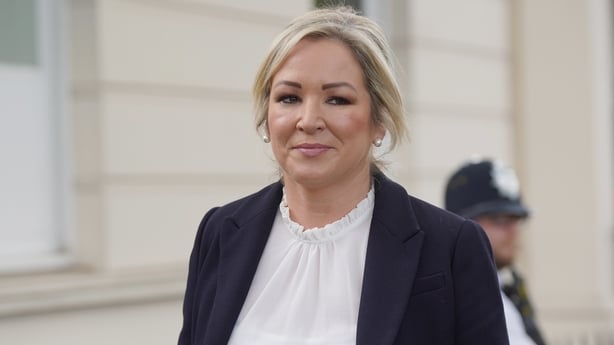
When yet another attempt to restore the Stormont Executive failed last Wednesday, Sinn Féin vice president and First Minister designate Michelle O’Neill said it was clear that the real reason for the continuing boycott is an unwillingness to accept a nationalist First Minister.
Sinn Féin knows that narrative plays well with the republican and nationalist electorate and will help motivate its support base in the next British General Election.
Senior DUP sources view it as a calculated insult and a refusal to acknowledge that the Irish Sea Border is a very real diminution of Northern Ireland’s position within the UK.
“Imagine if the EU had decided that the best post Brexit solution was to put border checks where the border had been for decades, between Northern Ireland and the Republic of Ireland. Do people seriously think Sinn Féin and the SDLP would have accepted that and remained in power sharing?,” says one DUP source.
“Of course they wouldn’t. But when the border was drawn down the sea between Great Britain and Northern Ireland, which threatens the integrity of the Union, we are expected to say that’s fine and move on.
“Michelle O’Neill talks a lot about wanting to be a First Minister for all, but there has been absolutely no attempt by Sinn Fein to understand our genuine concerns and to try to engage with us on the issue.”
There are other issues on the horizon cited as factors that could also make a decision by the DUP to return to power sharing in the near future.
One is the Covid public inquiry which is due to sit for hearings in Northern Ireland in March.
A key element of that inquiry will be the hugely controversial funeral for former senior IRA member Bobby Storey, which was attended by Michelle O’Neill, Sinn Féin president Mary Lou McDonald and thousands of mourners at a time when strict public health guidelines and restrictions were in place.
Uncertainty around next British General Election
The survival of any fledging restored Stormont Executive would be severely tested if that inquiry includes strong criticism of the actions of its recently appointed First Minister.
Uncertainty around the timing of the next British General Election is also a factor.
Some within the party openly talk about the possibility of striking a better deal with Keir Starmer as prime minister than Rishi Sunak and believe that holding off on a return to Stormont is the best strategy.
Jeffrey Donaldson has had talks with the Labour leader several times in recent months.
But the election, when it happens, contains potential jeopardy for the DUP.
It has borne the brunt of criticism from the other main parties in Northern Ireland for blocking a financial package to resolve the public sector pay dispute, which saw tens of thousands of workers take part in strike action and marches last Thursday.
Senior union officials have also pointed an accusing finger at the party and urged it to go back into devolution to let the money flow.
Many within the DUP fear that it will pay a price at the polls for the growing anger among public sector workers.
Tactical voting could exacerbate any backlash.
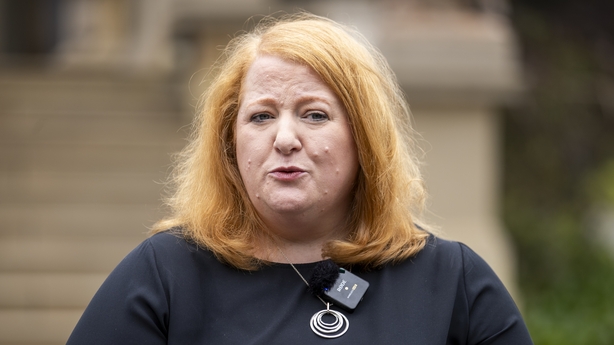
In May 2010 current Alliance Party leader Naomi Long caused a huge upset when she ousted the DUP’s Peter Robinson, who was Stormont’s First Minister at the time, as MP for East Belfast.
An important factor in that shock victory was Sinn Féin canvassers advising its supporters in the constituency to switch to Alliance in a bid to land a major blow on the DUP.
The same strategy could be rolled out in the next UK General Election.
In the 2019 election Jeffrey Donaldson retained his Lagan Valley seat with a majority of 6,449 from Sorcha Eastwood of the Alliance Party.
The party’s deputy leader Gavin Robinson retained his seat in east Belfast with a much reduced majority of 1,819 from Naomi Long.
A decision by Sinn Féin to advise supporters in those constituencies to “lend” their votes to the Alliance candidates, coupled with a possible backlash from public sector workers, would threaten the two most senior figures within the DUP.
Whichever way Jeffrey Donaldson looks, danger lurks.
It’s clear there are many within the DUP who would be very happy to see him removed as party leader.
Some have never fully trusted the former senior Ulster Unionist Party member, while supporters of former leader Edwin Poots are still angry about the way their man was forced out
The Lagan Valley MP knows he is walking a political tightrope with no safety net.
He knows any major misstep would be welcomed by many within his own ranks and wider unionism and loyalism.
Northern Secretary Chris Heaton-Harris will this week introduce new legislation to give him powers to act in the continued absence of a devolved administration.
He has consistently said in recent months that he wants locally elected politicians to make decisions about governing Northern Ireland and signalled a reluctance for a return to full blown direct rule.
But the longer the impasse continues the greater pressure will grow for what Taoiseach Leo Varadkar has referred to as Plan B, most likely a diluted form of direct rule with the Irish Government having a consultative role.
That would raise unionist and loyalist heckles and lead to a hardening of the DUP position.
The frost and ice of Friday has cleared, but Stormont remains in cold storage and that will continue unless Jeffrey Donaldson decides to hit the power sharing switch after almost two years of boycott and protest.
It could be a long winter up on the hill.

